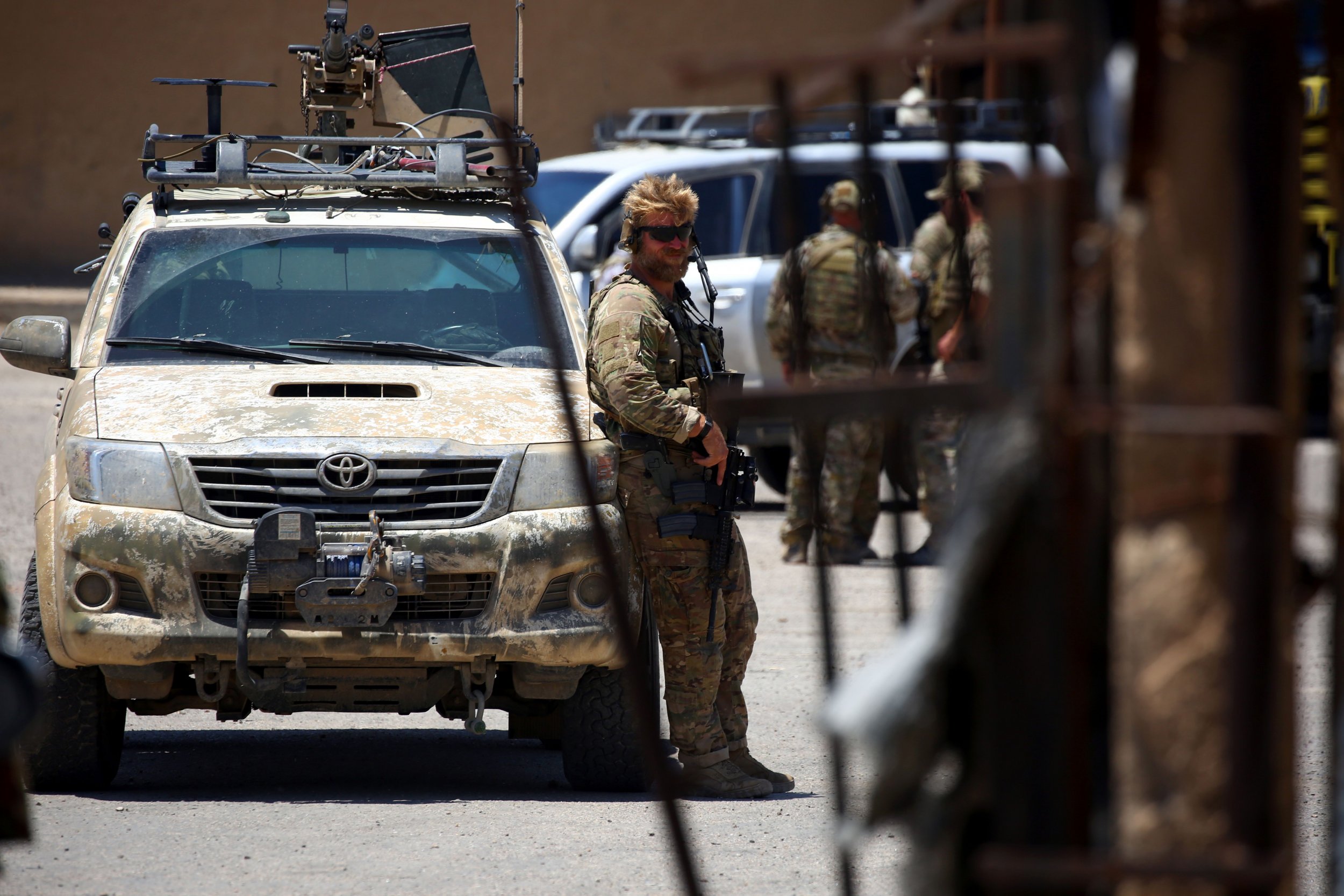
After months of pitched battles and airstrikes against Islamic State fighters holed up in the farming town of Baghouz, Syria, the last few square miles of the group's territorial caliphate was finally declared liberated last month. What was once a sprawling "caliphate" as about as large as the United Kingdom. has been reduced to a pile of rubble and ash, its exhausted foot-soldiers sent to detention camps.
The moment that military objective was achieved, U.S. forces should have begun a full, unconditional withdrawal from Syria. Eliminating the ISIS caliphate, after all, was the rationale for intervening in the first place. Yet rather than acknowledge success and redeploy U.S. troops from Syria as he said he would in December 2018, President Trump seems to have allowed his advisors to box him into another ever-expanding, open-ended military commitment in the Middle East with no direct connection to U.S. security.
Since then, Trump has reportedly engaged in talks with Turkey that would establish a 20-mile wide buffer zone along the northeastern Syria-Turkey border. Because Washington's allies and partners—including the U.K. and France—have declined to be involved in the project or are offering little in the way of assistance, the U.S. military will have chosen to carry on this unnecessary duty largely alone.
A safe zone is completely unnecessary for U.S. national security. Indeed, it is outright counterproductive—one more burden on an overstretched U.S. military. Washington should take every opportunity to extricate itself from a region that is decreasingly important to America's security and economic prosperity. Instead, these talks are making our unjustified entanglement more permanent.
There is a self-destructive, bipartisan habit in the Beltway to stretching original missions well beyond their original aims, overreaching to the point of futility. The tendency to endorse an overambitious grand strategy is unrealistic, unnecessary, and detrimental to U.S. power. Instead of pursuing realistic policies, setting clear, attainable objectives, and leaving once the mission is complete—in this case, destroying the ISIS caliphate—the foreign policy establishment consistently engages in wholesale mission transformation to justify a sustained U.S. military presence.
The Syria safe zone option is the quintessential example of this phenomenon. As time passes and the mission continues to grow, the American people will struggle to remember why Washington intervened in the first place. Meanwhile, billions of taxpayer dollars are squandered in strategically unimportant lands.
There is no national security benefit for the United States to play referee between the Turkish army and the Syrian Kurds, two forces with decades of adversarial history. Both sides are U.S. partners, but their enmity cannot—and should not—be solved by Americans from Kansas City, Mo., Manchester, N.H., or Boise, Idaho. The Turkish-Kurdish rivalry is not an American problem—it is one to be deftly handled by countries in the region with a greater stake in its resolution and greater understanding of its details. U.S. equities, power, and leverage in the Middle East will remain unparalleled regardless of who wins this power contest.
While some attempt to make a moral case for continued U.S. intervention in this conflict, it is not right to ask Americans in uniform to risk their lives for a mission never debated (let alone authorized) by Congress, lacking a clear political end-state, and detached from the broader goal of keeping the American people safe from transnational terrorism.
If we fail to end this military intervention, U.S. soldiers effectively would be asked to defend Kurdish interests in northeastern Syria, an action that would cause severe consternation with a NATO ally which has made it clear Kurdish autonomy in Syria is a red line. The United States is under no obligation to safeguard an aspiring Kurdish state in Syria's northeast or adopt the role of their permanent protectors.
Nor was the U.S.-Kurdish relationship in Syria designed to be a strategic alliance. Indeed, just the opposite; the rise of the Islamic State was the glue that held the relationship together. Once the mutual enemy was extinguished, the partnership ran its course.
Rather than continue to delude the American people into thinking every problem in the world is America's responsibility to solve, policymakers in Washington should set appropriate defense priorities based on what actually matters to the U.S. This requires a shift toward realism, not excessive interventionism or taking ownership of other people's fights. The sort of hubris that has defined post-Cold War Washington inevitably leads to overextension, fiscal ruin, and grave unintended consequences.
The American people have witnessed the strategic disaster that comes with endless mistakes in Afghanistan, Iraq, and Libya. They don't want the same thing to happen in Syria, a country of minor geopolitical importance that is simply not worth the trouble of one more permanent deployment.
As a candidate, Trump argued for getting the United States out of stupid wars and preventing new ones from emerging. Like his predecessor, the promise of foreign policy prudence and restraint helped him win the election. If he takes the advice of his more interventionist advisors and refuses to pull out of Syria, he will violate one of his most important campaign pledges.
Trump was right to claim "great powers don't fight endless wars" during his State of the Union Address this year. He has the opportunity to follow his own advice by exhibiting the courage to serve the American people instead of a foreign policy establishment that has gotten it wrong time and time again.
Daniel R. DePetris is a fellow at Defense Priorities and a columnist at the Washington Examiner.
The views expressed in this article are the author's own.
Uncommon Knowledge
Newsweek is committed to challenging conventional wisdom and finding connections in the search for common ground.
Newsweek is committed to challenging conventional wisdom and finding connections in the search for common ground.
About the writer
To read how Newsweek uses AI as a newsroom tool, Click here.








